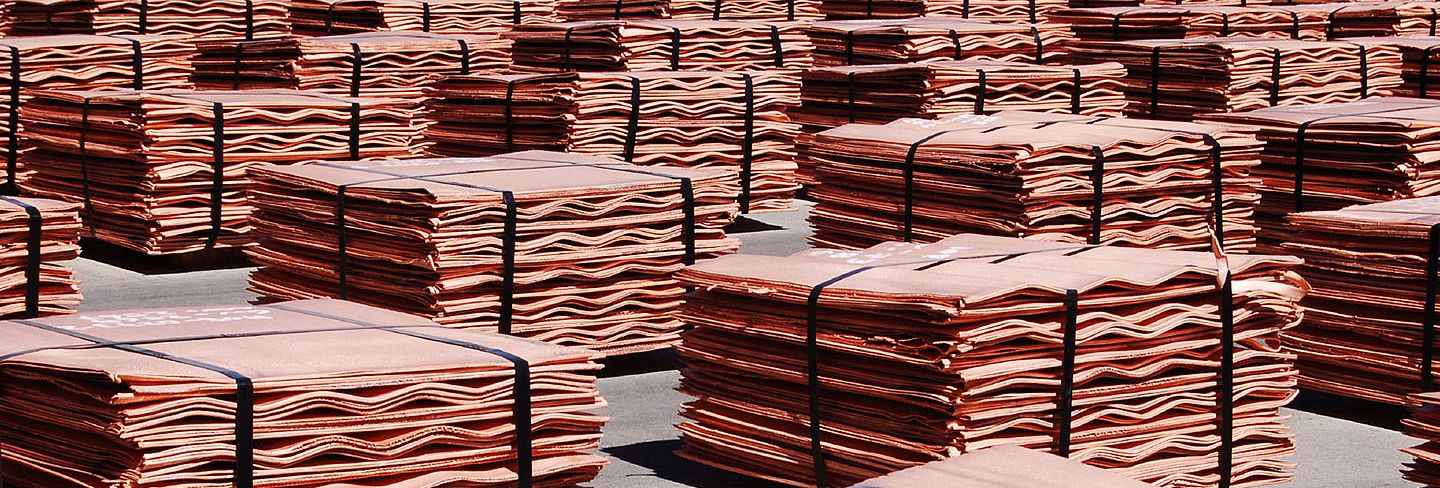Exactly how to Select the Right Copper Products for Your DIY Projects and Home Renovations
Exactly how to Select the Right Copper Products for Your DIY Projects and Home Renovations
Blog Article
Checking Out the Diverse Applications of Copper Products in Modern Industries
Copper items have established themselves as crucial components across a myriad of modern-day industries, primarily due to their amazing conductivity, pliability, and resistance to corrosion. From enhancing the effectiveness of electric systems to playing a vital function in renewable power modern technologies, the adaptability of copper is obvious. In addition, its recyclability positions it as a lasting selection in production and electronic devices. As sectors significantly focus on development and sustainability, the varied applications of copper warrant a closer assessment, especially concerning their possible effect on future environmental methods and technical advancements.
Electrical Applications of Copper
Copper is an important product in the electric sector, accounting for roughly 60% of the overall demand for non-ferrous metals worldwide - Copper Products. Its exceptional electric conductivity, which is virtually two times that of aluminum, makes it the preferred selection for a vast array of electric applications. From circuitry systems in commercial and residential buildings to high-voltage power transmission lines, copper ensures efficiency and dependability in electricity delivery
Along with circuitry, copper is integral to the production of electric components such as electric motors, transformers, and generators. These components take advantage of copper's thermal conductivity and malleability, crucial for warm dissipation and reliable performance. Furthermore, copper's resistance to corrosion enhances the lifespan and sturdiness of electric systems, making it a cost-effective option in the long-term.
The growth of sustainable energy resources, such as solar and wind power, has actually further increased the demand for copper in electric applications. As markets shift towards sustainable power solutions, copper's function becomes even extra crucial. Generally, the convenience and performance features of copper strengthen its condition as a foundation material within the electric field, driving development and performance across different applications.
Plumbing and Piping Solutions
In contemporary plumbing systems, the selection of products significantly influences both functionality and longevity. Copper has actually emerged as a favored choice as a result of its one-of-a-kind residential or commercial properties, including deterioration resistance and antimicrobial attributes. These features make certain that copper piping continues to be durable and risk-free for carrying safe and clean water, an important consideration in household and commercial applications.
One of the key benefits of copper in plumbing is its capability to hold up against heats and pressures, making it appropriate for a range of applications, from warm water systems to home heating and cooling down networks. In addition, copper's versatility enables for much easier installment in complicated piping layouts, minimizing the threat of failures and leakages.
Another noteworthy benefit is copper's long lifespan, commonly exceeding 50 years with appropriate upkeep. This durability not only reduces replacement expenses however likewise adds to lasting techniques by reducing waste. Copper's recyclability straightens with modern-day ecological requirements, promoting a round economy within the plumbing industry.
Copper in Renewable Energy
The flexibility of copper prolongs beyond plumbing applications, playing an essential function in the renewable energy industry. In solar panels, copper is utilized in photovoltaic or pv cells and wiring, helping with reliable energy conversion and transmission.

Additionally, as the global need for electrical cars (EVs) boosts, copper's function in battery systems and charging facilities becomes a lot more significant. The material's capacity to carry out electricity successfully is important to the performance of EV batteries, enhancing array and billing speed.
Copper's Role in Electronic devices
Electronic devices manufacturing depends heavily on copper's remarkable residential properties, specifically its high electrical conductivity and thermal performance. These attributes make copper a perfect selection for a large range of electronic components, including ports, motherboard, and electrical wiring. The metal's capacity to effectively transfer electric signals ensures marginal power loss, which is vital in high-performance digital gadgets.
Moreover, copper's thermal conductivity plays a considerable function in warmth dissipation, securing delicate elements from overheating. This is particularly vital in contemporary electronic redirected here devices, where portable designs cause enhanced warm generation. Copper is also favored for its malleability and ductility, allowing it to be quickly formed right into elaborate layouts that meet the needs of advanced electronic discover here applications.
With the rise of consumer electronic devices, telecoms, and electrical automobiles, the need for copper in the electronics field continues to expand. Thus, copper stays a keystone product in the ever-expanding field of electronic devices.
Ingenious Uses in Manufacturing

One remarkable application is in additive manufacturing, where copper-based materials are used in 3D printing processes. This enables the production of complicated geometries and lightweight parts, especially in the aerospace and automobile industries. Additionally, copper's thermal conductivity makes it a perfect option for warmth exchangers, enhancing performance in commercial cooling systems.
Furthermore, the surge of clever production has actually seen the incorporation of copper in IoT tools, where its conductive capacities support innovative noticing innovations. In the world of eco-friendly energy, copper is pivotal in the production of photovoltaic panels and wind generators, facilitating extra efficient energy conversion and circulation.
As sectors strive for sustainability and development, copper's adaptability and performance continue to position it as a critical product, driving improvements in production and adding to the development of smarter, more efficient items.
Final Thought
The important function of copper in eco-friendly power and its essential function in electronic devices underscore its significance in progressing sustainable techniques. Jointly, these applications illustrate copper's crucial contribution to technological development and commercial effectiveness in modern society.
From enhancing the performance of electric systems to playing an essential duty in renewable power modern technologies, the convenience of copper is noticeable. As markets significantly focus on innovation find out here and sustainability, the varied applications of copper require a closer examination, specifically concerning their potential effect on future technical improvements and environmental methods.
The development of renewable energy sources, such as solar and wind power, has better enhanced the demand for copper in electric applications. Overall, the convenience and efficiency attributes of copper solidify its standing as a foundation material within the electric field, driving advancement and effectiveness across various applications.
The versatility of copper expands past pipes applications, playing an essential duty in the sustainable energy market.
Report this page